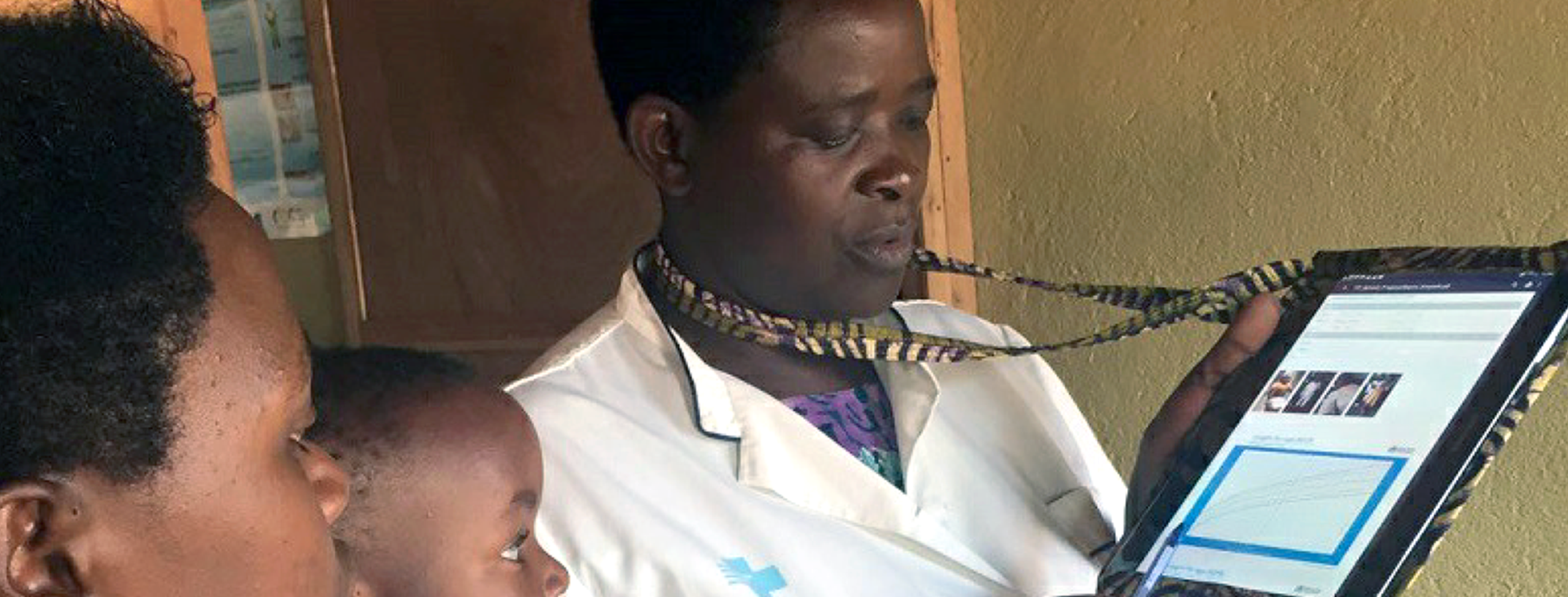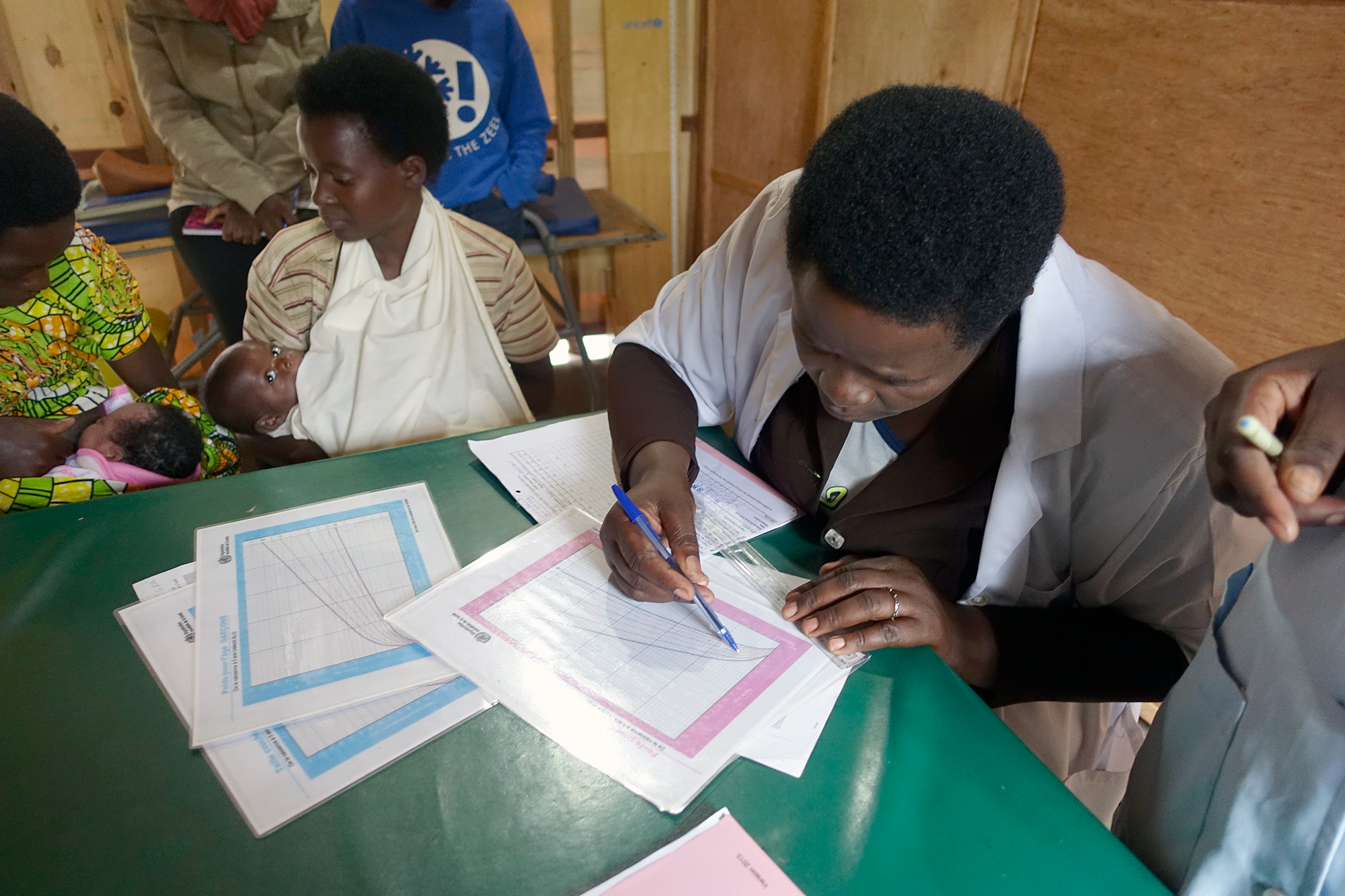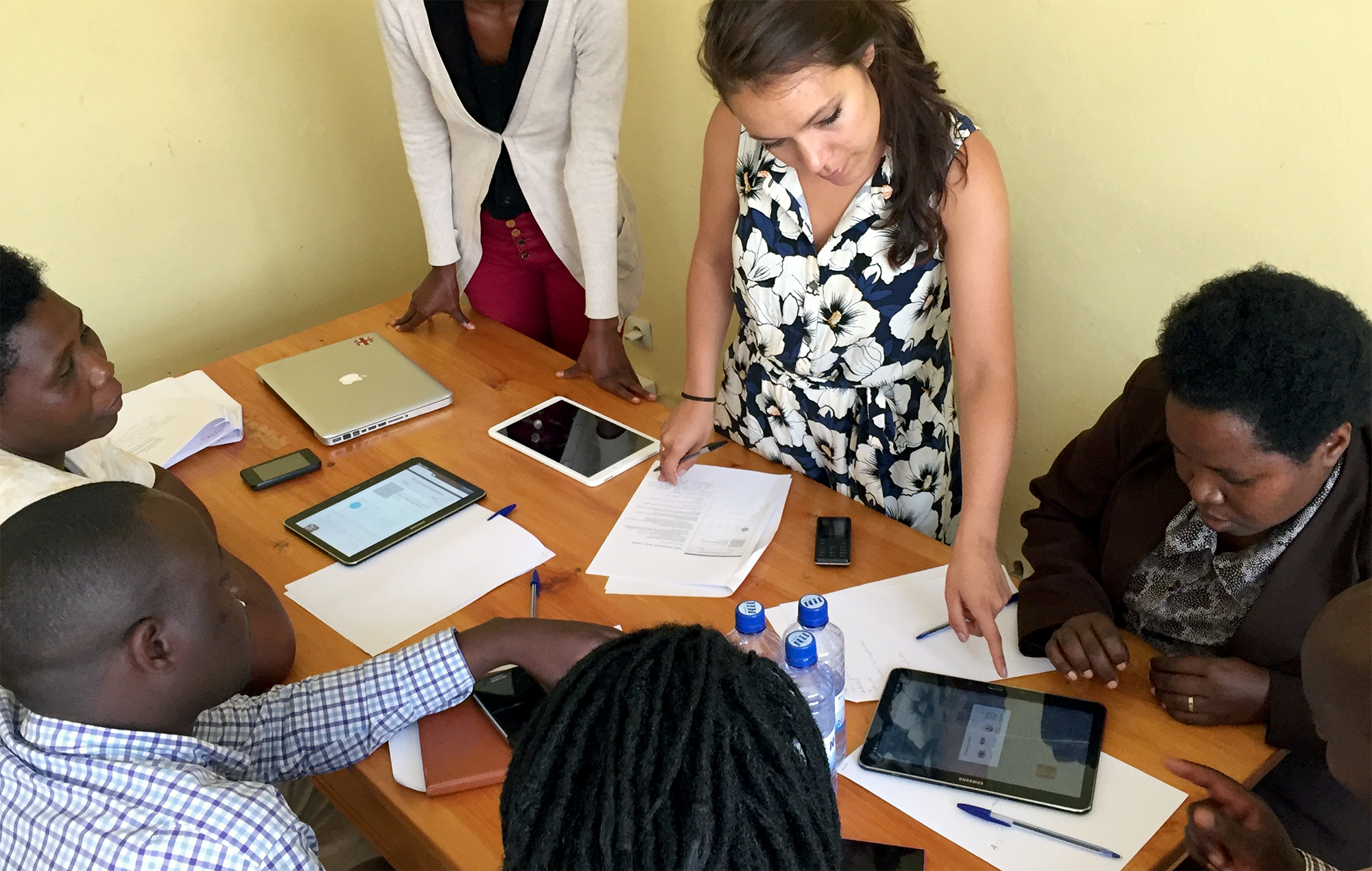
Client
Since 2008, TIP Global Health has been working at a local level to develop highly-effective and self-sustaining community-driven solutions that transform primary health care delivery and health systems.
Geography
Rwanda
Topic Area
Health
Project Type
Capacity Building
Digital & Physical Tools
The first 1,000 days of development are crucial for every child. Collecting high-quality data is one of the most effective tools to improve health outcomes for mothers and children. But in rural Rwanda, current data collection processes are time consuming and often inaccurate.
TIP Global Health envisioned an app that would put data collection and use into nurses’ hands. But they knew that any new tool would only be successful if nurses and mothers embraced it. We facilitated a collaborative process to design E-Heza, Rwanda’s first point-of-care digital health record, working alongside nurses, mothers, healthcare administrators, and TIP staff to ensure the tool meets each stakeholder’s specific needs.
Project Outputs
Tools We created E-Heza, a tablet-optimized, responsive web app, designed to support the specific needs of nurses and mothers. E-Heza works both on and off-line, as internet access is not always reliable in the remote health centers. Photos and measurements from each session display in a child’s progress report, offering mothers a visual record of their child’s growth and providing nurses a tangible tool for individualized health education.





We are so grateful for the GGS team! This has been such a wonderful partnership. They have been incredibly dedicated to helping us bring our vision to life and ensuring the design of E-Heza will truly support nurses and mothers.
Wendy Leonard
Client & Community Outcomes
Mindsets
The process of creating E-Heza gave TIP a concrete way to engage their users and stakeholders in the design process, leading to stronger features and an initial group of users eager to adopt the tool. One of the goals of E-Heza is to demonstrate the value of an inclusive process – leveraging the grass-roots knowledge of community members as a driver of the design of new tools. This process stands in contrast with more traditional top-down design or development processes, seeking to shift mindsets toward valuing the expertise and capacity of communities.
Behaviors
E-Heza’s design offers seamless support to nurses as they gather and record critical health data. A goal of this tool is to increase the accuracy and completeness of data collected from mothers and children. Digital, point-of-care documentation also allows for more rapid data analysis, which can support education and behavior change in mothers as well as reflection and improvement at the health centers.
Conditions
As of February 2021, there are over 43,500 mothers and children registered in E-Heza, and healthcare providers across Rwanda have logged over 106,000 encounters. Best of all, children who have had 3 or more visits on E-Heza have a 27% decrease in cases of severe malnutrition.








